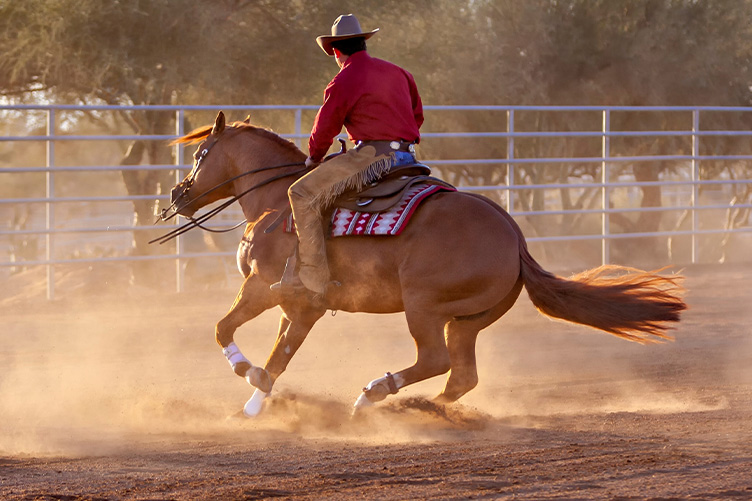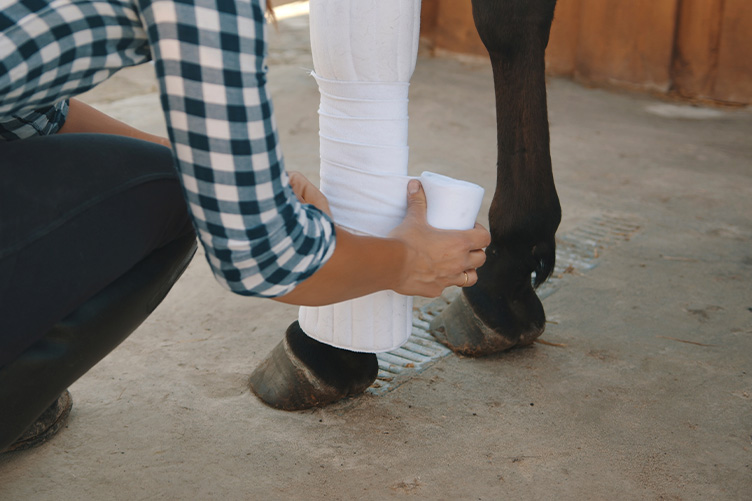
Keeping your horse moving smoothly and comfortably is a priority for every horse owner. Fortunately, advancements in equine health care have given us tools like joint supplements to support our horses’ well-being by encouraging the development of cartilage, synovial fluid, and connective tissues. But with so many products on the market, it’s natural to wonder: would a joint supplement benefit my horse?
This comprehensive exploration of equine joint supplements will delve into their potential benefits, when they might be useful, and the crucial factors to consider before incorporating them into your horse’s diet.
Understanding Joints and Why They Need Support
Joints are the meeting points between bones, allowing for movement and flexibility. Healthy joints are encased in a capsule filled with synovial fluid, a lubricant that nourishes cartilage and reduces friction during movement. Over time, with wear and tear, injuries, or age, this system can become compromised. Cartilage can break down, synovial fluid production can decrease, and inflammation can arise. These changes can lead to stiffness, pain, and lameness, impacting your horse’s performance and quality of life. Joint supplements for horses may help protect cartilage, reduce inflammation, and improve joint lubrication while promoting mobility and comfort, especially for active horses or those experiencing joint issues.
Who Can Benefit Most from Joint Supplements?
Here are some situations where a joint supplement might be worth considering for your horse:
- Senior Horses: As horses age, their bodies naturally produce less cartilage. Supplements can offer additional support for maintaining joint health. Some formulations are made specifically for senior horses, such as Grand Meadows Grand Flex Senior and Select the Best Legacy Pellets.

- Performance Horses: Horses engaged in intense training or competition put extra stress on their joints. Supplements can aid in recovery and help to prevent future problems. Nutramax Cosequin ASU Joint Health Supplement for Horses is a popular choice.

- Horses with Past Injuries: Injuries can lead to long-term joint issues. Supplements, like Nutramax Cosequin Optimized with MSM Joint Health Supplement for Horses, can potentially support healing and promote joint health.

- Horses Prone to Joint Issues: According to the American Association of Equine Practitioners, certain breeds (such as thoroughbreds, Quarter Horses, and miniature horses), disciplines (like driving, reining, and show jumping), or horses with conformational weaknesses might be more susceptible to joint problems. Supplements can offer preventative support.
Preventative vs. Therapeutic Use
Joint supplements can be beneficial for both prevention and treatment. For younger horses, especially those in performance disciplines or with heavy workloads, starting a joint supplement early can help protect their joints from future damage.
For horses already experiencing joint issues, supplements can offer some relief from pain and stiffness, potentially improving their comfort and mobility.
Signs Your Horse Might Need Joint Support
While a veterinarian is always the best resource for diagnosing joint issues, there are some signs that might indicate your horse could benefit from additional support:
- Stiffness, especially in the mornings or after exercise
- Difficulty rising or lying down
- Reluctance to move or engage in certain activities
- Shortened strides or altered gait
- Behavioral changes due to discomfort
How Joint Supplements Can Help
Joint supplements are designed to provide the body with the building blocks it needs to maintain healthy cartilage and synovial fluid. Common ingredients include the following.
- Glucosamine: A naturally occurring sugar molecule, glucosamine is a fundamental building block of healthy cartilage. Supplements provide the body with extra glucosamine, potentially aiding in the repair and regeneration of cartilage tissue.
- Chondroitin Sulfate: Another structural component of cartilage, chondroitin sulfate helps attract and retain water within the cartilage, increasing its elasticity and shock-absorbing abilities.
- MSM (Methylsulfonylmethane): An organic sulfur compound, MSM has anti-inflammatory properties. It may help reduce pain and stiffness associated with joint conditions like osteoarthritis.
- Avocado/Soybean Unsaponifiables (ASU): Some studies suggest that this extract derived from avocados and soybeans may possess anti-inflammatory properties and could help to modulate the enzymes that break down cartilage.
- Omega-3 Fatty Acids: These essential fatty acids possess natural anti-inflammatory properties. They can contribute to overall joint health by reducing inflammation and promoting healing. Read more about the benefits of Omega-3 fatty acids.
- Hyaluronic Acid (HA): A key component of synovial fluid, HA acts as a lubricant within the joint. Supplementation with HA may help improve joint lubrication, reduce friction, and promote smoother movement.
- Yucca Schidigera: This plant extract contains natural compounds with anti-inflammatory properties. It may also help improve the quality and viscosity of synovial fluid.
- Vitamin C: An antioxidant, Vitamin C plays a role in collagen production, which is important for healthy connective tissues around joints.
- Manganese: This mineral is essential for the production of glycosaminoglycans, which are important structural components of cartilage.
The ideal joint supplement for your horse will depend on their specific needs and any existing conditions. Look for supplements that contain a combination of these ingredients, ensuring they are high-quality and bioavailable for optimal absorption by your horse’s body.
Important Considerations Before Supplementing
While joint supplements can be beneficial, they’re not a magic bullet. Here are some key points to remember.
- Consult Your Veterinarian: Before starting any supplements, discuss your horse’s individual needs and health history with your vet. They can advise on the most appropriate product and dosage.
- Quality Matters: Choose reputable brands that use high-quality, bioavailable ingredients. Not all supplements are created equal, and some may have minimal effects.
- Consistency is Key: For optimal results, joint supplements must be given consistently for several weeks before noticeable improvement.
- Manage Expectations: Supplements support joint health, but they do not cure existing conditions. They may show gradual improvements over time.
- Address Underlying Issues: Joint supplements won’t address the root cause of problems like improper training, weight management, or unsuitable terrain.
Joint supplements can be a valuable tool in your horse’s overall health and wellness plan. By understanding how they work, who might benefit most, and consulting your veterinarian, you can make informed decisions about incorporating them into your horse’s care routine. Remember, a holistic approach that combines good nutrition, proper exercise, and preventative measures is crucial for keeping your horse’s joints healthy and happy for years to come.
